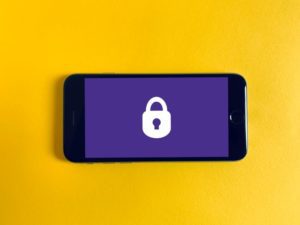
It’s a motley mix in this week’s roundup of Mobile ID World’s top stories, featuring a couple of important investigations, authentication innovation, a notable new partnership, and, as is so often the case these days, some digital ID news.
The latter comes by way of Luxembourg, where citizens now have access to a government-issued mobile app that can be used for remote identity verification when accessing online government services. The GouvID app leverages MRZ reading and contactless communications to interact with a citizen’s physical ID card, and supports the use of biometric authentication on their mobile device for additional security and convenience:
Luxembourg Government Launches ID App for e-Services Authentication
As for the aforementioned investigations, one of them concerned the IRS and its remote identity verification partner ID.me. The organizations’ partnership provoked controversy earlier this year when the IRS announced that Americans filing their taxes online would have to undergo a biometric identity verification process using ID.me’s technology. In the wake of the backlash, the IRS and ID.me enabled a non-biometric identity verification options; nevertheless, Congress is now getting involved, with the House Oversight Committee and the House subcommittee for issues related to COVID-19 opening a formal investigation into the project:
Congress Investigates IRS’s Remote Onboarding Partner
The other investigation that stoked reader interest this week has already concluded. Okta had hired a third-party forensic firm to look into a hack attack the authentication specialist had suffered in January, and the company has now come forward with the results of the investigation. It wasn’t nearly as bad as the worst-case scenario that had previously been envisioned:
Investigation Finds Only Two Clients Affected in Okta Security Breach
The week’s big authentication innovation news, meanwhile, came from Facebook’s parent company. Meta’s engineers have come up with a new Anonymous Credential Service that is designed to allow large-scale authentication of individuals without requiring them to share any personal information. Meta says its ACS helps to minimize computing needs, and is already being used to collect performance data from applications like WhatsApp:
Meta’s Anonymous Credential Service Enables Privacy-protecting Authentication
And finally, a new partnership attracted some attention from Mobile ID World readers. Blinking, a digital onboarding specialist, has teamed up with IPification, seeking to use the latter’s phone-based verification system to replace its SMS One-Time Passcode authentication mechanism. Blinking Co-founder and COO Milos Milovanovic explained that the collaboratioin will offer Blining clients “the ability to be more confident in their end users due to mobile phone ownership and plans used”:
Blinking Replaces SMS Passcodes With IPification
*
Keep reading Mobile ID World for the latest news from the world of digital identity. You can also visit our sibling site FindBiometrics to learn more about biometrics.

Follow Us